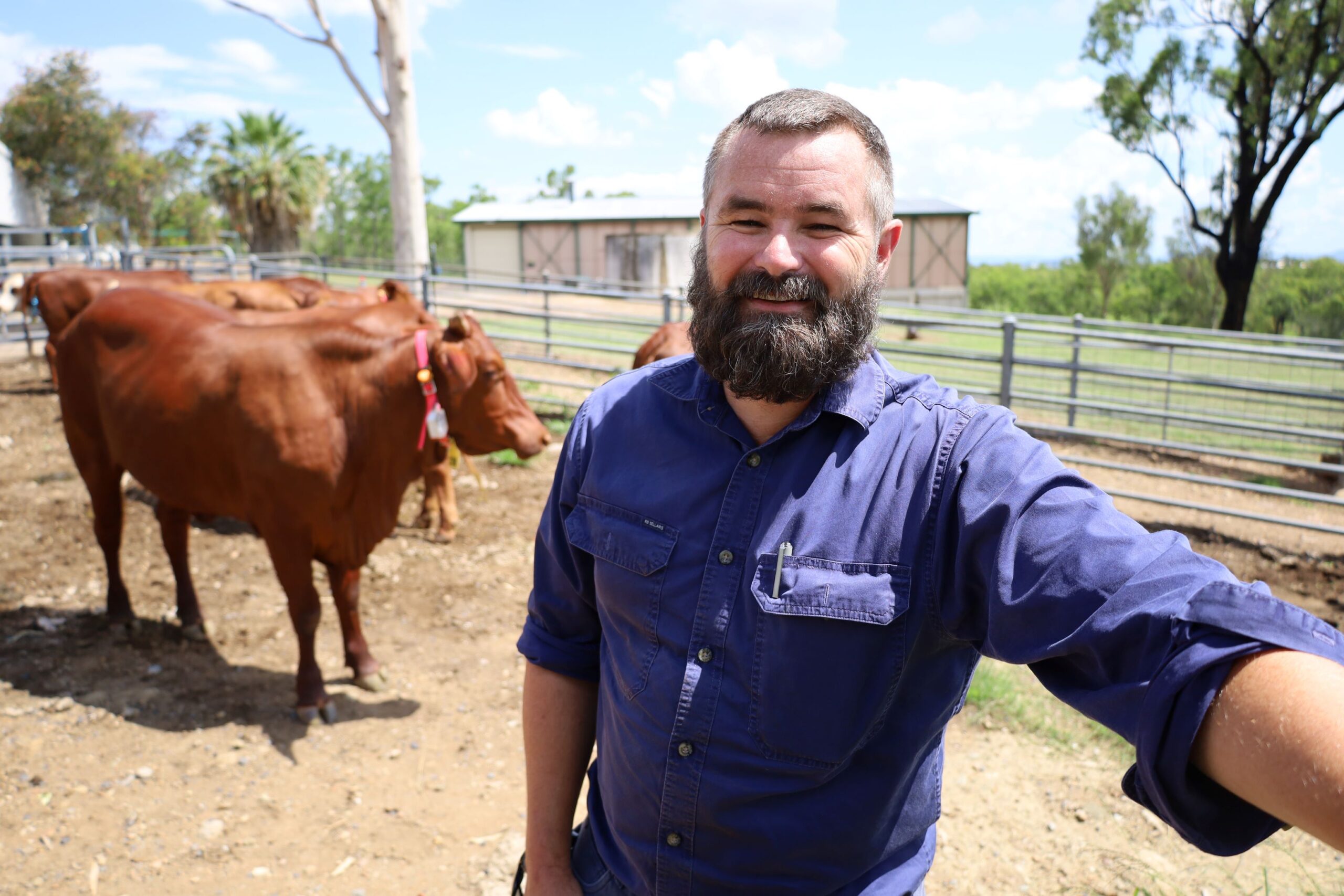New sensors reveal cows start feeling the heat at surprisingly low temps
New research into climate impacts on extensive grazing suggests that cows start feeling the heat at much lower temperatures than expected.
Data captured from on-animal sensors shows cows have a significant decrease rumination at maximum daily temperatures of 31oC or more. At this point, rumination time has dropped by around 20% which translates to reduced feed intake and impacts on production.
The preliminary data is from trials conducted by CQUniversity, in partnership with the University of Queensland and funded by Meat & Livestock Australia, over the summers of 2022/23 and 2023/24 at AgForce’s Belmont Research Station outside of Rockhampton.
Professor Mark Trotter, head of CQU’s precision livestock management team, said the impacts of high temperatures in pastures and rangelands, and how cows change their behaviour to cope, were not well understood.
“This is one of the first studies in the world to explore heat stress in extensively grazed beef cattle, with most of the research to date carried out in feedlots and the dairy industry,” Prof. Trotter said.
“We are continuing to analyse this data to understand how breeders are responding to increasing temperatures and the subsequent impact on this may have production.
“This may challenge the way the industry thinks about the true costs of heat stress in grazing cattle, and if predictions of increasing temperatures come to fruition, we will have to start thinking about how we manage heat stress in our breeding cattle.
“While the big heat waves are likely to have obvious impacts, it’s the more subtle changes in coping behaviour at more moderate temperatures that could really start to eat into production,” Prof Trotter said.
The CQU research team is also exploring how heat stress impacts calves at Belmont Research Station by using GPS tracking and accelerometer sensors to detect impacts on survival and growth through to weaning.
“By understanding individual animal variability in heat stress response, there may be an opportunity in future for genetic selection of more tolerant cattle,” Prof. Trotter said.
The research is part of a range of studies underway at CQU, including evaluation of new dual-purpose crops and tropical legumes, and precision feeding technologies delivering supplements based on the requirement of the individual animal to achieve a production target.

For more information please contact Mark Trotter on 0447 441 841.